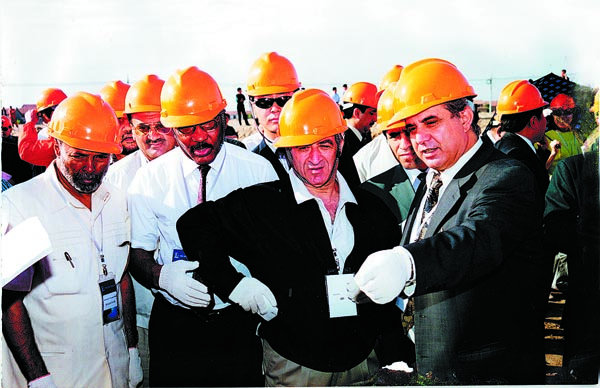

The second stage involves the economic growth and progress sparked by the policy of reform and opening-up, Saphariny says.
"China steadily moved forward on the road of scientific and technological progress. The process of reform and opening-up is not one of random deployment, but an unprecedented, innovative theory with clear objectives, dimensions and results.
"Socialism with Chinese characteristics is a development path chosen by the Chinese people in accordance with the country's special conditions.
"Reform is the foundation of opening-up. Opening-up means enhancing China's comprehensive strength through the exchange of technology and experience, as well as mutual benefits from the cultural achievements of other countries. Introducing everything that conforms to the interests of the people and the country, and rejecting everything that does not conform to them," he says.
To create a peaceful and cooperative regional environment of mutual benefit while maintaining international relations, China has also built on its domestic achievements to strengthen cooperation with neighboring countries, Saphariny says.
The third, current stage is how China is "becoming stronger" as it works toward establishing a "well-off society in an all-round way", building "a prosperous, strong, democratic, civilized, harmonious and beautiful modern socialist country", says Saphariny, whose rich experiences in China and seminal study at Peking University have been compiled under a major oral history project of the elite educational institution.
"Peking University is a very special place for me. When I first arrived here, I didn't know much about the world.... It was in China and at Peking University that I realized that force was not necessarily the only way to resolve disputes between states or any international affairs," he recalls.
"There is also dealing with any dispute and international affairs through dialogue and consultation. I think that's a very good, very valuable point of view."